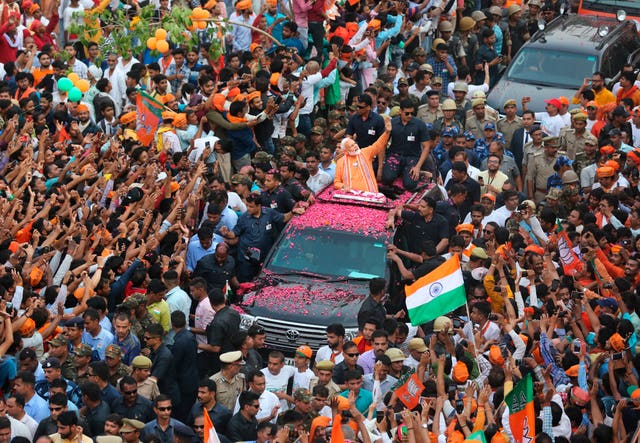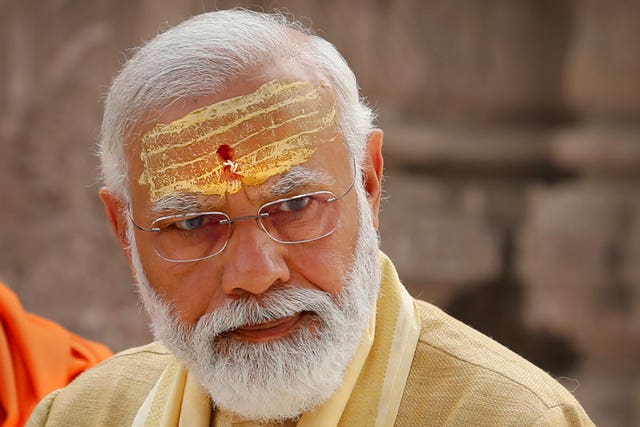
Millions of Indians began voting on Friday in a six-week election that is a referendum on Narendra Modi, the populist prime minister who has championed an assertive brand of Hindu nationalist politics and is seeking a rare third term as the country’s leader.
In the first 21 states to hold votes, voters began queuing up at polling stations hours before they were allowed in at 7am, from the Himalayan mountains to the tropical Andaman Islands.
Nearly 970 million voters — more than 10% of the world’s population — will elect 543 members to the lower house of Parliament for five years during the staggered elections that run until June 1.
The votes will be counted on June 4.
This election is considered one of the most consequential in India’s history and will test the limits of Mr Modi’s political dominance.

If Mr Modi wins, he will be only the second Indian leader to retain power for a third term, after Jawaharlal Nehru, the country’s first prime minister.
Most polls predict a win for Mr Modi and his Hindu nationalist Bharatiya Janata Party.
They face a broad opposition alliance led by the Indian National Congress and powerful regional parties.
It is not clear who will lead India if the opposition alliance, INDIA, wins the election.
The alliance’s more than 20 parties have not put forward a candidate, saying they will choose one after the results are in.
The election comes after a decade of Mr Modi’s leadership, during which the BJP consolidated power through Hindu-first politics and economic development.
Mr Modi has ratcheted up Hindu nationalist rhetoric on the campaign trail and has sought to present himself as a global leader.
His ministers tout him as the steward of a surging India, while his supporters celebrate his campaign promise to make India a developed nation by 2047 when it marks 100 years of independence.
Critics warn that Mr Modi has turned increasingly illiberal and could use a third term to undermine India’s democracy.
His Hindu nationalist politics, they argue, has bred intolerance and threatens the country’s secular roots.

The alliance has promised to arrest the democratic slide it says India has witnessed under Mr Modi’s rule.
They accuse Mr Modi of sidelining elected ministers in favour of trusted bureaucrats and using tax authorities and the police to harass critics and opposition parties.
Christophe Jaffrelot, who has written about Mr Modi and the Hindu right, said: “Modi has a very authoritarian mindset. He doesn’t believe in democracy. He doesn’t believe in parliamentarianism.”
Mr Modi insists that India’s commitment to democracy is unchanged. He told a Summit for Democracy meeting in New Delhi in March that “India is not only fulfilling the aspirations of its 1.4 billion people but is also providing hope to the world that democracy delivers and empowers.”


Comments: Our rules
We want our comments to be a lively and valuable part of our community - a place where readers can debate and engage with the most important local issues. The ability to comment on our stories is a privilege, not a right, however, and that privilege may be withdrawn if it is abused or misused.
Please report any comments that break our rules.
Read the rules here